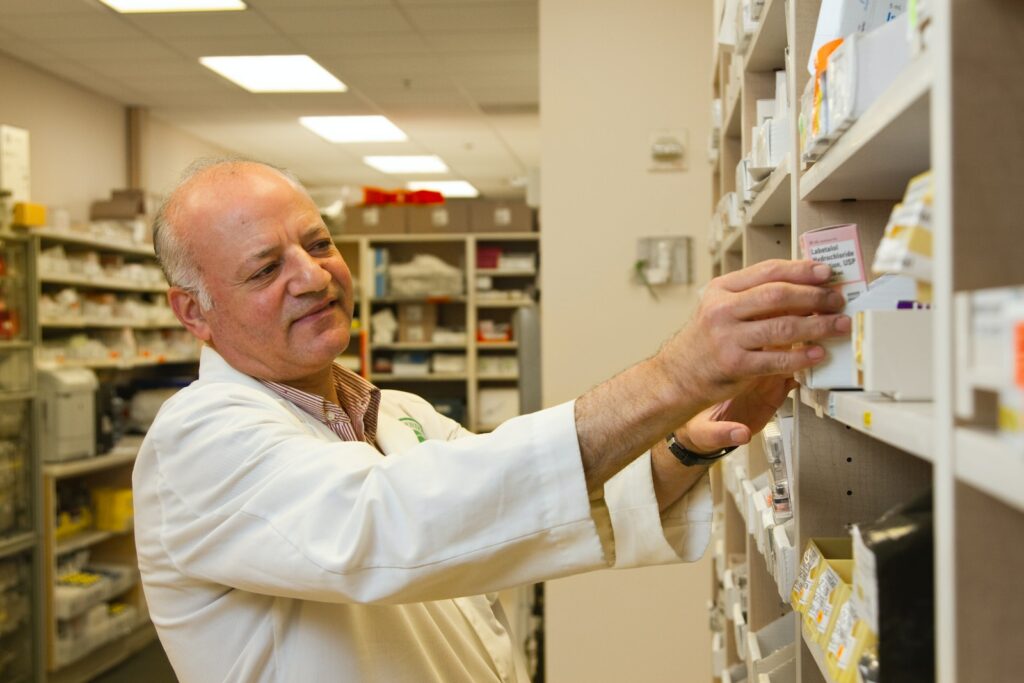As we age, our bodies go through various changes, and staying proactive about our health becomes increasingly important. Preventive screenings play a crucial role in detecting potential health issues before they become serious.
Regular health checks can help identify risk factors, monitor existing conditions, and promote overall well-being. In this article, we will explore the importance of preventive screenings for seniors, discussing the key screenings recommended for maintaining optimal health in the golden years.
Blood Pressure Screening: Monitoring Heart Health
Regular blood pressure screenings are essential for seniors, as high blood pressure is a common condition that increases the risk of heart disease, stroke, and other health complications. Monitoring blood pressure levels can help identify hypertension early on and allow for appropriate interventions such as lifestyle modifications or medication to manage it effectively.
Cholesterol Check: Assessing Cardiovascular Health
Elevated cholesterol levels are a significant risk factor for cardiovascular disease. Regular cholesterol checks, including measuring total cholesterol, LDL cholesterol (bad cholesterol), HDL cholesterol (good cholesterol), and triglyceride levels, can help assess cardiovascular health and guide interventions like dietary changes, exercise, or medication if necessary.
Diabetes Screening: Managing Blood Sugar Levels
Diabetes is a chronic condition that affects the body’s ability to regulate blood sugar levels. Regular screenings for diabetes, such as fasting blood sugar tests or hemoglobin A1C tests, are crucial for seniors. Early detection enables timely management through lifestyle modifications, medication, or insulin therapy, reducing the risk of complications.
Cancer Screenings: Early Detection for Improved Outcomes
Cancer screenings are vital for detecting various types of cancer at their earliest stages when treatment outcomes are typically more favorable. Seniors should undergo regular screenings such as mammograms for breast cancer, colonoscopies for colorectal cancer, and prostate-specific antigen (PSA) tests for prostate cancer, as recommended by their healthcare provider.
Osteoporosis Screening: Assessing Bone Health
Osteoporosis is a condition characterized by weak and brittle bones, making seniors more susceptible to fractures. Bone density scans, such as dual-energy X-ray absorptiometry (DXA) scans, can assess bone health and determine the risk of osteoporosis. Early detection allows for appropriate interventions like calcium and vitamin D supplementation, exercise, and medication if necessary.
Vision and Hearing Tests: Preserving Sensory Health
Regular vision and hearing tests are important for seniors to ensure optimal sensory health. These screenings can detect conditions such as cataracts, glaucoma, macular degeneration, and hearing loss. Early detection enables timely interventions like corrective lenses, hearing aids, or other treatments to manage these conditions and maintain quality of life.
Immunizations: Protection against Infectious Diseases
Immunizations are a vital component of preventive healthcare for seniors. Vaccinations, such as influenza, pneumonia, shingles, and tetanus shots, help protect against infectious diseases and their complications. Seniors should stay up to date with their immunizations as recommended by healthcare professionals.
Cognitive Assessments: Monitoring Brain Health
Cognitive assessments are valuable for monitoring brain health and detecting cognitive decline or conditions such as dementia or Alzheimer’s disease. These assessments may involve memory tests, problem-solving exercises, and evaluations of overall cognitive function. Early detection allows for appropriate management and interventions to support cognitive well-being.
Regular Check-ups and Health Screenings: A Holistic Approach
In addition to specific screenings, regular check-ups with healthcare providers are crucial for seniors. These visits provide an opportunity to discuss any concerns, review medications, assess overall health, and receive personalized recommendations for preventive screenings based on individual needs and risk factors. Regular communication with healthcare professionals ensures comprehensive and personalized care.
Conclusion
Preventive screenings are essential for seniors to maintain optimal health and detect potential health issues before they become serious. From blood pressure and cholesterol checks to cancer screenings, vision and hearing tests, and cognitive assessments, these screenings play a vital role in promoting overall well-being. By staying proactive and participating in recommended health checks, seniors can take charge of their health and enjoy a higher quality of life in their golden years.
FAQs
Q: How often should seniors undergo preventive screenings?
A: The frequency of preventive screenings for seniors may vary depending on individual health conditions, risk factors, and recommendations from healthcare providers. It is best to consult with a healthcare professional to determine the appropriate screening schedule based on individual needs.
Q: Are preventive screenings covered by health insurance?
A: Many preventive screenings are covered by health insurance, especially for seniors. Medicare, for example, offers coverage for a range of preventive services. It is advisable to review insurance coverage and consult with the insurance provider to understand specific coverage details.
Q: Can preventive screenings prevent all health issues?
A: While preventive screenings play a crucial role in early detection and intervention, they cannot prevent all health issues. However, regular screenings increase the chances of identifying potential problems early, allowing for timely management and reducing the risk of complications.
Q: What can seniors do to prepare for preventive screenings?
A: Seniors can prepare for preventive screenings by following any pre-screening instructions provided by their healthcare provider, such as fasting requirements or medication restrictions. It is also helpful to make a list of questions or concerns to discuss during the screening appointment.
Q: Are there preventive screenings specifically recommended for men or women?
A: Yes, certain preventive screenings may be recommended based on gender-specific health concerns. For example, mammograms are recommended for breast cancer screening in women, while prostate-specific antigen (PSA) tests are recommended for prostate cancer screening in men. Consultation with healthcare providers can provide personalized recommendations.
References:
[1] Mayo Clinic: https://www.mayoclinic.org/
[2] Centers for Disease Control and Prevention: https://www.cdc.gov/
[3] American Cancer Society: https://www.c

